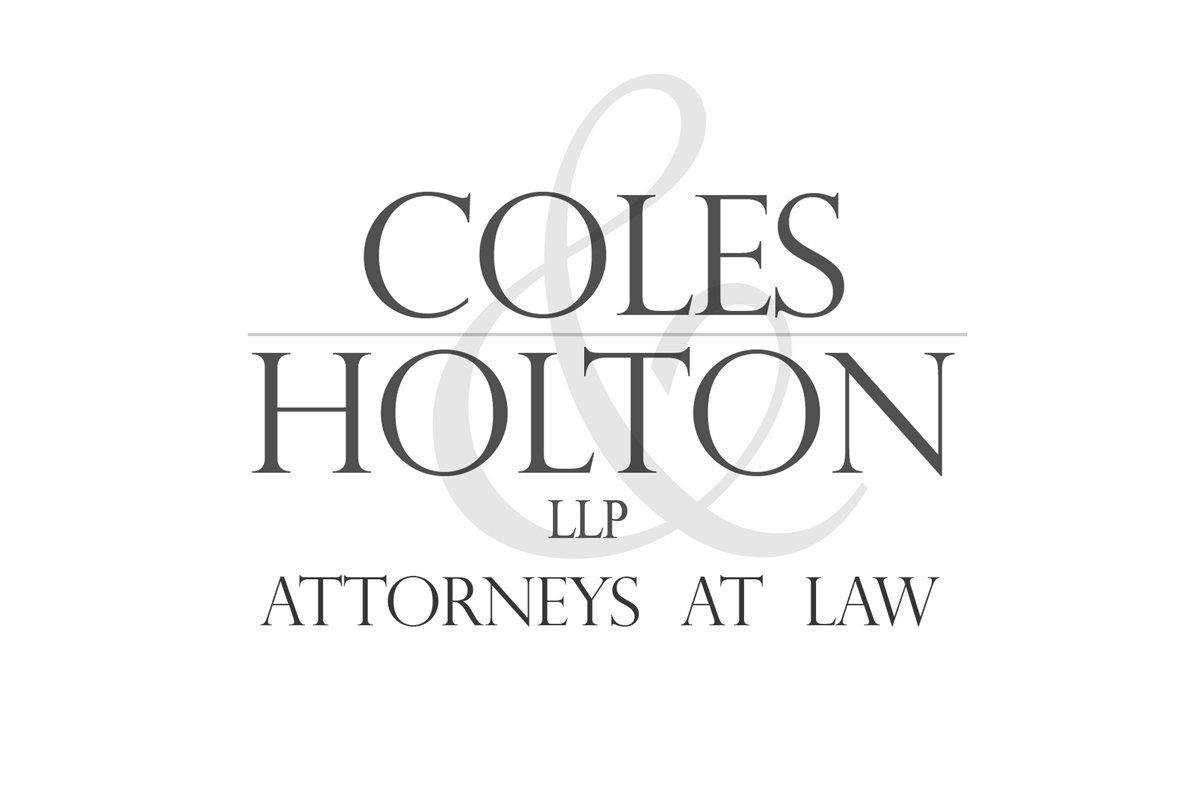WHAT TYPE OF BANKRUPTCY IS RIGHT FOR YOU?
WHAT TYPE OF BANKRUPTCY IS RIGHT FOR YOU?
Should you file for Chapter 7 or Chapter 13 Bankruptcy?
Should you file for Chapter 7 or Chapter 13 Bankruptcy?
If you’re having trouble keeping up with paying your living expenses along with paying off your debts, you may consider filing for bankruptcy. Filing for bankruptcy helps those in serious financial distress find some relief and allow them a chance to start fresh with their finances. At Coles & Holton, we're happy to help you discover if a Chapter 7 or a Chapter 13 bankruptcy is the right fit.
Chapter 7 Bankruptcy
Chapter 7 Bankruptcy
Chapter 7 bankruptcy is designed for those without enough disposable income to repay their creditors. Filing a Chapter 7 bankruptcy can usually be completed in just a few months. If one files for Chapter 7 bankruptcy, they will be able to rid themselves of their unpaid debt and start fresh.
Filing for Chapter 7 might be right for you if:
Filing for Chapter 7 might be right for you if:
You have limited assets.
It would take five years or more to pay off your debt after taking all available measures.
You meet certain income requirements.
You have general unsecured debts, such as credit cards and medical bills.
Exempt vs. Non-Exempt Items
Exempt vs. Non-Exempt Items
In a Chapter 7 bankruptcy, you will be assigned a trustee who will evaluate your property and decide what is valuable enough to be sold. Valuable assets will be sold to pay off your debts to your creditors. Some property is considered exempt and debtors will be able to keep it.
Exempt property may include:
Exempt property may include:
- Motor vehicles (up to a certain value)
- Necessary clothing, household goods, furnishings and appliances
- Jewelry (up to a certain value)
- Pensions
- A percentage of equity in a debtor’s home
- Tools of the debtor’s profession (up to a certain value)
- A portion of earned but unpaid wages
- Public benefits
- Damages awarded for personal injury
Some property is considered non-exempt and the debtor will have to sell this property to repay creditors.
Non-Exempt property may include:
Non-Exempt property may include:
- A second vehicle or home
- Cash, bank accounts, stocks, bonds, other investments
- Family heirlooms
- Collections of valuable items
Chapter 13 Bankruptcy
Chapter 13 Bankruptcy
For those who have a regular income and less than $419,275 in unsecured and $1,257,850 in secured debts*, Chapter 13 may be the best choice. In this process, consumers will have the opportunity to protect their secured property from repossession or forclosure and repay some or all of their unsecured debts over a three to five year timespan. A Chapter 13 bankruptcy would be best for someone who has the means to pay off their debts, but needs more time to do so. When filing for Chapter 13 bankruptcy, you will be protected from collection attempts from your creditors.
*These numbers are current as of April 2019 and adjusted every three years for inflation.
Filing for Chapter 13 may be right for you if:
Filing for Chapter 13 may be right for you if:
You are behind on your mortgage or car loan but would rather catch up with past payments than lose your property
You need more time to catch up on paying your debts
You have non-exempt property that you would like to keep, even at a cost.
You make enough steady income that you have money left over each month to pay off a portion of your debts through a repayment plan
In a Chapter 13 bankruptcy, you will be assigned a trustee who will collect your monthly payment and distribute it amongst your creditors.
Means Test
Means Test
Before filing for bankruptcy, one must take a Means Test, according to bankruptcy law. The Means Test will dictate the type of bankruptcy the debtor will file. Bankruptcy can be complicated, but it doesn’t have to be.
At Coles & Holton, we’re happy to help you navigate the bankruptcy process.

